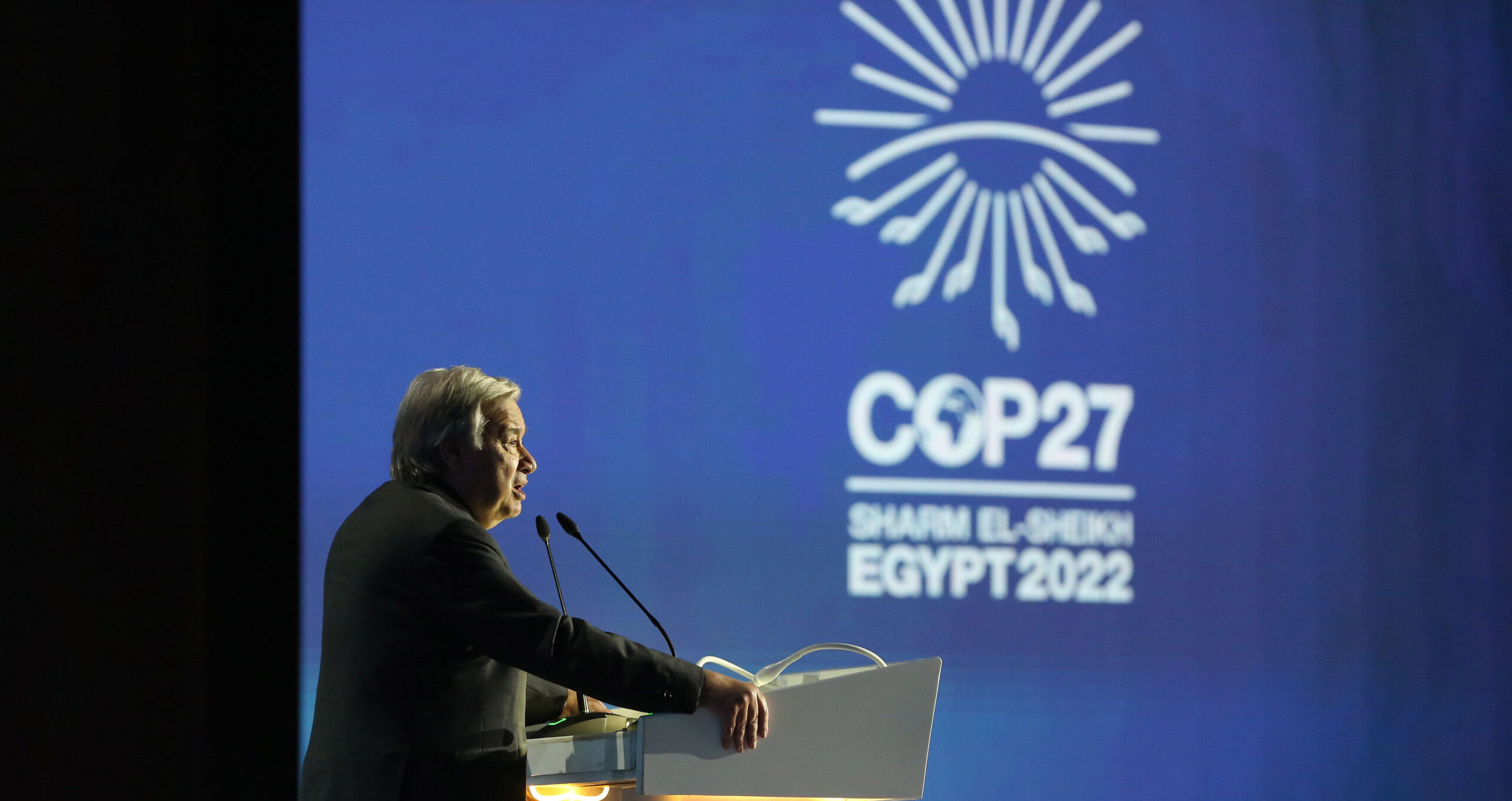
COP27: Better regulation needed to complement initiatives like Gfanz

As the first week of this year’s UN climate talks has ended, with new funding mechanisms announced and progress reports released, questions remain about the efficacy of net zero alliances and voluntary targets.
Expectations for the Glasgow Financial Alliance for Net Zero — launched ahead of COP26 by former Bank of England governor Mark Carney — the UN-backed Race to Zero campaign and the UK COP presidency were high at last year’s climate summit. Now, 12 months later, the vibes around the initiative at COP27 are significantly more nuanced, with a clear call for an end to greenwashing and the need for mandatory transition plans if the alliance is to help decarbonise the global economy.
By COP26 in November, 450 financial institutions from 45 countries managing assets of $130trn had signed up to the goal of net zero portfolio emissions by 2050. “The rapid and large-scale, increase in capital commitment to net zero, through Gfanz, makes the transition to a 1.5C world possible,” said Carney in Glasgow.
Buffeted by geopolitical headwinds, the dream of keeping 1.5C alive has become generally more distant in recent months and Gfanz has not escaped the storm. The initiative added 100 members over the past year, while losing two pension funds. Several US banks, including JPMorgan, Morgan Stanley and Bank of America had threatened to leave, but ultimately stayed put. Many see their fingerprints, and the wider pushback by some in the US against any greening of the financial system, on Gfanz’s decision at the end of October to quietly relegate the Race to Zero to the role of advisory body. In June, Race to Zero published criteria making it clear that members must “restrict” their facilitation of all new fossil fuel projects, and that “no new coal” must be supported. (The reference to coal was then removed in September with Race to Zero stating this fallowed legal advise that the wording could expose its staff to risks, as reported by the Financial Times.)
Members of Gfanz are setting climate targets, but they are often not in line with science. Analysis published this week by campaigner ShareAction on the latest progress report by the Net Zero Banking Alliance, which is part of Gfanz, shows many banks are still failing to set interim emissions reduction targets to measure progress out to 2030. Inconsistent metrics are also an issue, says ShareAction, with banks focusing on reducing the intensity of emissions rather than absolute emissions, for example.
Attendees at COP27 generally defend Gfanz as a positive contribution to pushing the financial sector to decarbonise and to help fund the energy transition. “The world cannot make the net-zero transition without huge capital flows into zero carbon assets,” says Kirsten Snow Spalding, vice president of the Ceres Investor Network, citing Gfanz as an important part of this shift. David Atkin, CEO at the Principles for Responsible Investment, takes a similar line. “The work of Gfanz has been vital in facilitating collaboration across the breadth of the financial services industry,” he says.
In defence of Gfanz
Gfanz is “a necessary ingredient” in the transition to net zero, says climate disclosure platform Persefoni’s general counsel Kristina Wyatt, previously with the US Securities and Exchange Commission. Such initiatives may be “fluid, non-binding and often voluntary” because of “conflicting stakeholder pressure and demands,” but they can move faster than regulatory agencies and can help “emphasise market positions,” says Wyatt. The fact they are “cross jurisdiction” is also important “for speed and to promote standards,” she says, underlining the need to bring institutions together. “Many of the greatest challenges in the low-carbon transition can often seem insurmountable for a single company,” she comments.
However, even those involved in the creation of Gfanz agree that with support of national regulators, the initiative needs to go further and faster. “It is fair there is a one-year period for businesses to get interim targets in place, but in the end, if they’re not delivering on them, or they’re reneging on them, they should not be part of these alliances,” comments COP26 president Alok Sharma, who is negotiating in Sharm El Sheik on behalf of the UK. “Voluntary commitments will only ever take the world so far,” says Nigel Topping, the UK’s climate action champion for COP26, urging governments to “urgently implement policies to support the real economy’s transition to net zero”.
Veronica Oakeshott, forests campaign leader at NGO Global Witness, agrees the “best way to save Gfanz” after its “split” from Race to Zero is for “governments to legislate to put its members’ net zero promises on a legal footing, preventing investment in fossil fuels and deforestation”. She cites the recommendations to end greenwashing published by the UN secretary-general António Guterres (pictured) this week as showing the way forward. A report published at COP27’s Finance Day on Wednesday says asset management firms signed up to Gfanz have only reduced investments in deforestation by a paltry 3 per cent in the past year.
The Egyptian presidency has deemed COP27 the “implementation” climate summit. If the financial sector is to implement its ambitions, Gfanz needs to stay, but it and national governments must now move forward with intent, even in the face of anti-green gales.
“Absolutely, we are better off with initiatives such as Gfanz,” says Nina Seega at the Cambridge Institute for Sustainability Leadership. They must be strengthened, however, with “mandatory, publicly available transition plans with short-, medium- and long-term targets”, higher national climate ambition, and a “more supportive, more stable and stricter regulatory environment”.
Image via Mercury Bloomberg.
Similar Articles

In Brief: EU parliament rubber-stamps CSDDD; US imposes strict rules on carbon pollution from power plants

UK Climate Change Act remains legally sound 15 years on, experts say


